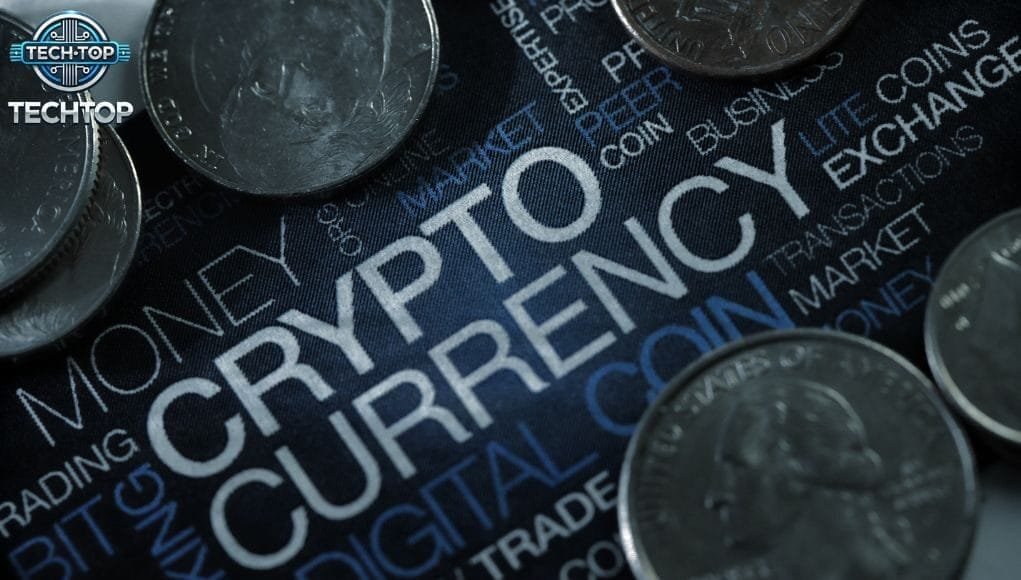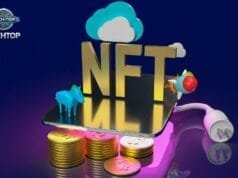Table of Contents
Whether you’re a newbie or a seasoned crypto enthusiast, this guide is designed to empower you with all the knowledge you need to navigate the exciting world of digital assets securely. Let’s dive in! 🌊
1. Introduction to Crypto currency Safety 🌟💡
Crypto currency is transforming the financial world, and with this revolution comes a new set of opportunities and challenges. In today’s digital age, protecting your crypto assets is as important as growing them. In this section, we introduce the core concepts of crypto currency safety and why being cautious is key to your financial future. 💹🔐
What’s in Store?
- Why Crypto Safety Matters: From securing your hard-earned money to protecting against cybercriminals, learn why crypto safety is non-negotiable. 🛡️💸
- Opportunities & Risks: Understand the dual nature of cryptocurrencies—exciting potential paired with significant risks. ⚖️🚨
- Who Should Read This: Beginners, experienced traders, and anyone looking to optimize their digital security measures. 📈👨💻
Key Takeaways:
- Rapid Market Growth: Cryptos are booming, but so are the threats! 📊🔥
- User Responsibility: In the decentralized world of crypto, YOU are your own bank. 🏦👤
- Layered Security: A multi‑layered security approach—from buying to storage—is essential. 🔄🔒
Embrace the future of finance with confidence and caution—your journey to secure crypto ownership begins here! 🎉✨
2. Understanding Crypto currency Fundamentals 📚🔍
Before you buy and store your digital assets, it’s vital to understand the basics of crypto currency. This section covers all the essentials you need to know about how cryptocurrencies work, their benefits, and the risks associated with them. Let’s break it down! 🧩💡
What Is Crypto currency?
Crypto currency is digital money that uses cryptography for secure transactions. Unlike traditional currency, it operates on decentralized networks, meaning no single entity is in charge. Here’s what makes it unique:
- Blockchain Technology: A decentralized ledger that records every transaction transparently. Think of it as a giant, immutable digital notebook! 📒🔗
- Decentralization: No central authority—just a network of users verifying transactions. This empowers you with true financial independence. 🌐👥
- Cryptographic Security: Complex algorithms ensure that transactions are secure and data remains private. 🔐🤖
How It Works
- Transactions: When you buy or sell crypto, your transaction is added to the blockchain. Miners or validators then verify it, ensuring trust and transparency. 💳✅
- Wallets: These are digital tools (or even physical devices) that store your public and private keys. They are your gateway to accessing and managing your assets. 📱🗝️
- Exchanges: Platforms where you can buy, sell, or trade cryptocurrencies. Choosing a reputable exchange is the first step toward secure investing. 💻💱
Benefits & Risks
Benefits:
- Global Access: Anyone with an internet connection can join the crypto revolution. 🌍📡
- Low Transaction Fees: Especially for international money transfers. 💸✈️
- Transparency: Every transaction is recorded on a public ledger for easy verification. 📜🔎
Risks:
- Volatility: Prices can swing dramatically—profit and loss are two sides of the same coin. 🎢💥
- Security Threats: Cyber hacks, phishing, and malware can jeopardize your assets if you’re not careful. 🚨👾
- Regulatory Uncertainty: Laws governing crypto are evolving and can impact market behavior. ⚖️❓
Armed with these fundamentals, you’ll be better prepared to make informed decisions about buying and safeguarding your digital assets. Dive in, and let knowledge be your shield! 🛡️📚

3. How to Buy and Store Crypto currency Safely💳🔒
Purchasing crypto currency can be thrilling—but without the right precautions, it can also be risky. In this section, we break down the safest methods and platforms to help you buy crypto without compromising your security. Let’s get started! 🚀🛍️
Choosing a Secure Crypto currency Exchange
Selecting the right exchange is your first line of defense. Here’s what to consider:
- Reputation & Reviews: Opt for exchanges with positive reviews and a proven track record. 👍⭐
- Robust Security Features: Look for features like two-factor authentication (2FA), cold storage, and encryption. 🔐🔑
- User Experience: An intuitive interface and responsive support team make a huge difference. 😊💬
- Regulatory Compliance: Ensure the platform adheres to local and global regulations (KYC & AML). 🏛️📜
Table 1: Exchange Comparison at a Glance
| Feature | Centralized Exchange (CEX) 💳 | Decentralized Exchange (DEX) 🔄 |
|---|---|---|
| Security | High – advanced security protocols 🔒 | Moderate – less centralized risk ⚙️ |
| User Control | Custodial – funds held by exchange 🏦 | Non-custodial – you control your keys 🔑 |
| Ease of Use | User-friendly interfaces 😊 | Requires more technical know-how 🤓 |
| Regulatory Compliance | Fully compliant 🏛️ | Often less regulated, more anonymous 🎭 |
| Liquidity | High liquidity 💰 | Varies, sometimes lower 💸 |
Step-by-Step Guide to Buying Crypto Safely
- Research Extensively: Check reviews, security audits, and community feedback. 🔍💬
- Register and Verify: Complete the KYC process for extra security. 📝✅
- Secure Your Account: Enable 2FA and choose a strong, unique password. 🔑📲
- Deposit Funds Safely: Use trusted banking channels and payment methods. 💵🏦
- Place Your Order: Decide between market and limit orders based on your comfort level. 📈📉
- Double-Check Transaction Details: Confirm all details before finalizing your purchase. 👀✍️
- Transfer to a Personal Wallet: For optimal security, move your crypto from the exchange to your wallet immediately. 📤💼
Each step is designed to maximize your security and minimize risks. Embrace these measures, and invest smartly! 🚀🔐
4. Storing Your Crypto currency Safely 📦🛡️
Once you’ve purchased your crypto currency, the next vital step is to store it securely. This section explores the various storage options available and helps you decide which method is best suited to your needs. Let’s secure those digital treasures! 💰🔒
Different Types of Wallets
There are several types of crypto wallets, each with its own advantages and limitations. Here’s a quick rundown:
- Hardware Wallets: Physical devices (like Ledger or Trezor) that store your keys offline. They offer top-notch security against online threats. 🖥️🔒
- Software Wallets: Applications installed on your computer or smartphone that are convenient for daily transactions. They are user-friendly but can be vulnerable to malware. 📱💻
- Paper Wallets: A printed copy of your keys, which is completely offline. They are secure from digital hacks but must be handled with extreme care. 📝💼
- Custodial Wallets: Wallets provided by exchanges or third parties where you do not control the keys. While easy to use, they require trust in the provider. 🤝🏦
Choosing the Right Wallet for You
Consider your needs when choosing a wallet:
- Frequency of Use: If you trade daily, a software wallet might be best. 🔄📱
- Amount of Crypto: For large amounts or long-term holdings, a hardware wallet is recommended. 💰🛡️
- Backup & Recovery: Ensure your wallet offers secure backup options like seed phrases. 🔑📝
- User Experience: A clean, intuitive interface can reduce the chance of errors. 😊💻
Table 2: Wallet Options Comparison
| Wallet Type | Security | Convenience | Cost | Ideal For | Pros | Cons |
|---|---|---|---|---|---|---|
| Hardware Wallet | Very High 🔒 | Moderate 📉 | Medium to High 💲 | Long-term, high-value storage | Offline protection, robust security | Costly, less convenient for frequent trades |
| Software Wallet | Moderate 🔐 | Very High 😊 | Free or Low 💲 | Everyday transactions | User-friendly, feature-rich | Vulnerable to malware & hacking |
| Paper Wallet | High (if stored safely) 📝 | Low 🚫 | Minimal 💲 | Cold storage, backup solution | Immune to online threats | Risk of physical damage or loss |
| Custodial Wallet | Variable (provider‑dependent) 🤝 | Very High 😊 | Included in fees | Beginners, frequent traders | Easy setup, integrated services | Less control over private keys, risk if provider is hacked |
Best Practices for Wallet Backup
- Seed Phrases: Write down your seed phrases and store them in multiple, secure locations. 📜🛡️
- Offline Storage: Consider storing backups in safe deposit boxes or other secure offline locations. 🏦🔒
- Encryption: If digital backups are necessary, always use strong encryption and secure cloud storage solutions. 🔐☁️
By choosing the right wallet and following these secure backup strategies, you can ensure that your crypto currency remains safe from both digital and physical threats. Protect your assets like the treasure they are! 💎🚀

5. Best Security Practices & Protocols for Crypto Users 🔑🛡️
Implementing strong security practices is the cornerstone of keeping your crypto currency safe. In this section, we detail everyday habits and advanced protocols to build a robust security system around your digital assets. Let’s boost your crypto defense! 💪🛡️
Two-Factor Authentication (2FA) – Double the Protection!
- What Is 2FA? Two-factor authentication adds an extra layer of security by requiring a second form of verification (like a mobile code) in addition to your password. 📲🔑
- Why It Matters: Even if your password is compromised, 2FA can block unauthorized access. 🚫👤
- Tips: Use authenticator apps (e.g., Google Authenticator, Authy) instead of SMS to avoid SIM swapping attacks. 📱💡
Multi-Signature (Multisig) Wallets – Team Up for Security
- How It Works: Multisig wallets require more than one key to authorize transactions. For instance, a “2-of-3” setup means two out of three keys must sign off on a transaction. 🤝🔐
- Benefits: This significantly reduces the risk of a single point of failure and makes unauthorized transfers nearly impossible. 🚫🗝️
- Ideal For: Business accounts, joint investments, and high-value wallets. 💼💰
Keeping Software & Firmware Updated
- Regular Updates: Always install the latest updates for your wallet apps, operating systems, and antivirus software. 🆕💻
- Security Audits: Choose providers that undergo regular third‑party security audits. 🔍✅
- Anti-Malware: Maintain robust anti-malware protection to guard against phishing and hacking attempts. 🚫👾
Secure Internet Practices
- Avoid Public Wi‑Fi: Use secure, private networks when accessing crypto accounts. 🔒📶
- Use a VPN: A VPN can add an extra layer of security when browsing or managing your funds online. 🌐🛡️
- Be Wary of Phishing: Always double‑check URLs and never click on suspicious links. 🔎🚫
Following these best practices is not just a suggestion—it’s a necessity in the high‑stakes world of crypto currency. Adopt these habits and keep your digital assets secure at every turn! 🌟💪
6. Common Facts & Myths about Crypto currency Security 🤔✅❌
There are many myths surrounding crypto currency security that can lead to dangerous missteps. In this section, we debunk common misconceptions and present the facts, so you can make informed decisions. Let’s separate myth from reality with plenty of emojis! 🎭💡
Myth vs. Fact: Quick Comparison
| Myth | Fact | Emoji Verdict |
|---|---|---|
| Crypto Is Totally Anonymous 😶 | Crypto is pseudonymous; transactions are recorded on a public blockchain. | 🔍👀 |
| Hardware Wallets Are 100% Foolproof 🛡️ | Extremely secure, but physical theft or mishandling of backup phrases can still pose risks. | ⚠️💔 |
| Once Purchased, Crypto Is Immune to Scams 🚫 | Social engineering and phishing remain threats even with secure wallets. | ❌📉 |
| Expensive Wallets Guarantee Better Security 💲 | Security depends more on proper practices and backups than on price alone. | 💡🔑 |
Detailed Analysis
- Crypto Anonymity: Many believe that cryptocurrencies are completely anonymous 😶, but in truth, every transaction is traceable on the blockchain. Advanced analytics can reveal patterns that link transactions to individuals.
- Hardware Wallets: Although these devices offer robust offline protection, neglecting physical security measures (like safeguarding your seed phrase) can leave you vulnerable. Always treat your hardware wallet as part of a comprehensive security strategy.
- Scams & Phishing: No storage method is completely immune to scams. Even the most secure wallets can be compromised if you fall prey to phishing scams. Always verify sources and never share your private keys! 🚫🔑
Dispelling these myths and understanding the facts can help you adopt the best practices for keeping your crypto safe. Knowledge is power—arm yourself with the truth! ⚔️📚
7. Comparing Wallet Options: A Detailed Analysis 📊🔎
Choosing the right wallet for your crypto currency is like picking a safe for your treasures. In this section, we break down the various wallet types and provide a detailed comparison to help you decide which option suits your needs best. Let’s get analytical! 🧮📈
Wallet Types and Their Characteristics
Below is a detailed comparison of the main wallet types available:
| Wallet Type | Security Level | Ease of Use | Cost | Ideal Use Case | Key Pros | Drawbacks |
|---|---|---|---|---|---|---|
| Hardware Wallet | Extremely High (Offline) 🔒 | Moderate (Physical) | Medium to High 💲 | Long-term storage, high-value assets | Superior security, resistant to online hacks | Initial cost, less convenient for day‑to‑day transactions |
| Software Wallet | Moderate (Online Risk) 🔐 | Very High (Mobile/Desktop) | Free or Low 💲 | Frequent trading and small to moderate holdings | Easy access, user‑friendly interface | Prone to malware if device is compromised |
| Paper Wallet | High (Offline) 📝 | Low (Manual Process) | Minimal 💲 | Cold storage and backup solutions | Immune to hacking, no digital footprint | Easily damaged, loss can be catastrophic |
| Custodial Wallet | Variable (Depends on provider) 🤝 | Extremely High (Integrated) | Often included in fees | Beginners and regular traders | Minimal technical setup, integrated services | No control over private keys, risk of exchange hacks |
Key Considerations for Wallet Selection
- Security vs. Convenience: More secure options (like hardware wallets) are less convenient for frequent transactions. Find the balance that suits your lifestyle! ⚖️🔒
- Cost Implications: Evaluate both initial and ongoing costs. Remember, investing a little in security can save you from massive losses later. 💲🛡️
- Backup & Recovery: Ensure that the wallet offers robust backup mechanisms such as seed phrases and multiple recovery options. 🔑📝
- User Experience: A wallet with an intuitive interface can significantly reduce the risk of user error. 😊💻
By carefully comparing your options and considering your specific needs, you can select the wallet that offers the best balance of security, convenience, and cost. Make an informed choice and safeguard your digital fortune! 💰🏆
8. Regulatory Environment & Legal Considerations ⚖️🏛️
Navigating the legal and regulatory landscape of cryptocurrencies is as critical as securing your digital assets. This section highlights the key legal aspects, regulatory challenges, and what you should be aware of when investing in crypto. Let’s break down the legal jargon! 📜🕵️♂️
Understanding KYC and AML Protocols
- KYC (Know Your Customer): Most reputable exchanges require identity verification to prevent fraud. This process not only protects you but also helps maintain the integrity of the crypto market. 🆔✅
- AML (Anti-Money Laundering): These measures prevent the misuse of cryptocurrencies for illicit activities. Compliance with AML regulations is a hallmark of a trustworthy platform. 🚨🌐
Global Regulatory Perspectives
Regulations can vary widely depending on where you live:
- Strict Regulatory Environments: Countries with robust regulatory frameworks enforce stringent measures on exchanges and wallet providers, ensuring high standards of security. 🏛️🔒
- Emerging Markets: Some regions offer a more relaxed regulatory environment, providing more freedom but also introducing higher risks. ⚠️🌍
Legal Protections for Crypto Investors
- Insurance & Recourse: Some platforms now provide insurance policies for stored assets, and understanding your legal rights can offer additional peace of mind. 📑🛡️
- Transparency & Audits: Reputable providers regularly publish security audits and adhere to compliance standards, ensuring you know where your money is and how it’s protected. 🔍✅
By staying informed about the legal landscape and choosing compliant platforms, you can navigate the regulatory environment with confidence and protect your investments from legal pitfalls. Stay updated and always consult legal experts if needed! 👩⚖️📚
9. Practical Tips & Future Trends in Crypto Security 🔮💡
Staying secure in the dynamic world of crypto currency requires continuous learning and adaptation. In this section, we offer practical, everyday tips and a look at emerging trends that will shape the future of crypto security. Let’s future-proof your crypto journey! 🚀🕶️
Everyday Security Tips
- Regular Audits: Periodically review your security settings and update passwords to ensure everything is up-to-date. 🔄🛡️
- Strong, Unique Passwords: Use a password manager to generate and store strong, unique passwords for every account. 🔑💪
- Monitor Your Accounts: Set up notifications and alerts for any unusual activity in your accounts. 📲🚨
- Educate Yourself: Stay abreast of the latest scams, hacks, and security news in the crypto world. 📚📰
- Diversify Your Storage: Spread your assets across different wallets and platforms to mitigate risks. 💼🔀
- Backup Everything: Never underestimate the importance of securely backing up your keys and seed phrases. 📝🔒
Future Trends Shaping Crypto Security
- Advanced Wallet Technologies: Innovations in hardware and software wallets are constantly evolving to offer even higher levels of protection. 🖥️⚙️
- Decentralized Identity Management: New protocols may reduce the need for centralized KYC processes, increasing both privacy and security. 🆔🔐
- Artificial Intelligence & Machine Learning: These technologies are being integrated to predict, detect, and prevent security breaches in real time. 🤖📊
- Improved Multi-Signature Protocols: As collaborative investments grow, advanced multisig solutions will offer enhanced protection for joint accounts. 🤝🔑
- Regulatory Clarity: As governments worldwide refine their crypto policies, expect more secure frameworks that benefit investors. ⚖️🌐
Adopting these practical tips and staying informed about future trends will ensure that you remain ahead of the curve in crypto security. Embrace change, stay vigilant, and let innovation work in your favor! 🌟🚀

10. Frequently Asked Questions (FAQs) ❓💬
In our final section, we address some of the most common questions about buying and storing crypto currency safely. Whether you’re just starting out or looking to deepen your knowledge, these FAQs will help clear up any uncertainties. Let’s answer your burning questions! 🔥👩💻
Q1: What is the safest type of crypto currency wallet?
A: Hardware wallets are widely recognized as the safest option because they store your keys offline, significantly reducing the risk of online hacks. However, always remember to secure your physical device and backup seed phrase! 🔒🖥️
Q2: How do I choose a secure crypto exchange?
A: Look for exchanges with robust security features like 2FA, regular security audits, transparent fee structures, and strong regulatory compliance. Do thorough research by reading reviews and expert comparisons before signing up. 👍🏦
Q3: Are hardware wallets completely foolproof?
A: While hardware wallets provide superior protection against online threats, they are not immune to risks such as physical theft or mishandling. Always store your backup seed phrases securely and follow best practices for physical security. ⚠️🛡️
Q4: What common scams should I watch out for?
A: Beware of phishing scams, fake websites, and unsolicited investment offers promising high returns. Always verify URLs, double-check transaction details, and never share your private keys with anyone! 🚫👤
Q5: How can I protect my seed phrase effectively?
A: Write your seed phrase on paper and store it in a secure, offline location—preferably in multiple, geographically separated places. Avoid digital backups such as screenshots or cloud storage to prevent unauthorized access. 📝🏦
Q6: What is multi-signature authentication and why is it important?
A: Multi-signature (multisig) wallets require multiple approvals to authorize a transaction, thereby adding an extra layer of security. This is especially useful for business accounts or joint investments where additional approval is needed to move funds. 🤝🔑
Q7: How do regulatory changes affect crypto buying and storage practices?
A: Regulatory changes can impact how exchanges operate and the security measures they adopt. Staying informed about local and international regulations ensures you can adjust your security practices accordingly and choose platforms that adhere to the highest standards. ⚖️📜
How to Buy and Store Crypto currency Safely 🎉🔐
The world of crypto currency is exciting, dynamic, and full of potential—but with great opportunity comes the responsibility of robust security. By following the strategies and best practices outlined in this guide, you can safely navigate the crypto landscape and protect your digital assets against cyber threats. Remember:
- Stay Informed: Knowledge is the best defense against evolving threats. 📚🛡️
- Be Vigilant: Regularly review your security settings and stay updated on the latest trends. 👀🔄
- Invest in Security: From hardware wallets to multi-signature setups, never compromise on safety. 💰🚀
- Embrace Innovation: Keep an eye on emerging technologies and regulatory updates that can enhance your security measures. 🤖📈
Whether you are a beginner or a seasoned investor, this comprehensive guide—packed with rich content, tables, and tons of emojis—serves as your go‑to resource for buying and storing crypto currency safely. Follow these tips, stay proactive, and let your crypto journey be as secure as it is profitable! 🔒💡💰
Embrace the digital revolution with confidence, protect your assets with robust security measures, and join the millions who are transforming the future of finance—safely and securely! 🚀🎉🔑
More From Us
- Best Cryptocurrencies to Invest in 2025: A Comprehensive Guide 🚀💰
- Bitcoin vs Ethereum: Which Is the Better Investment 101? 🚀💰
- DeFi Income Strategies
- Crypto Regulations Update
- Safe Crypto Storage Tips
Happy investing, and may your crypto journey be filled with prosperity and peace of mind! 😃💸✨
















[…] the Need for Offline Card […]